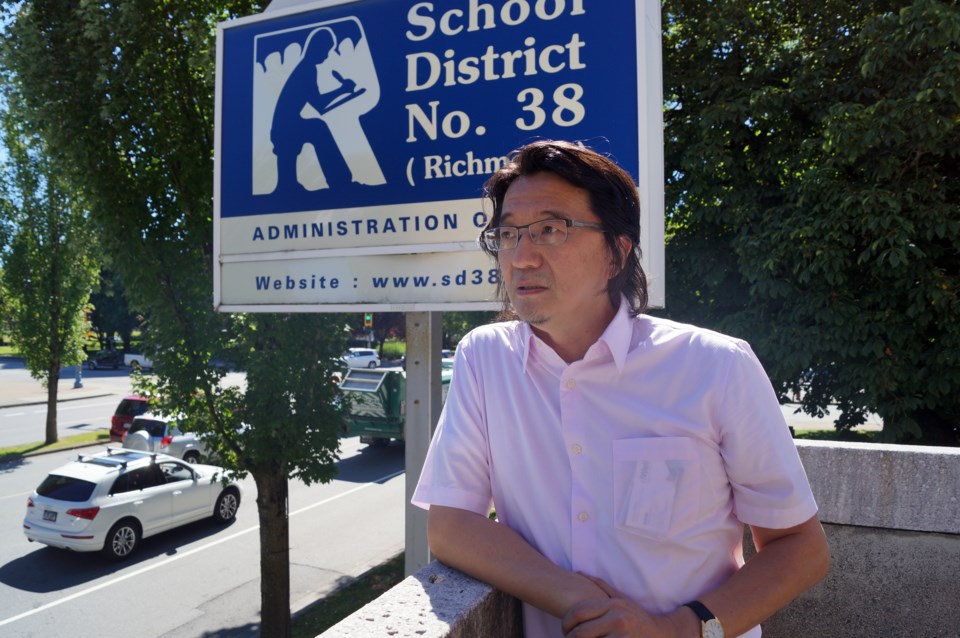Richmond-based lawyer Lawrence Wong is alleging school district officials are unfairly over-scrutinizing the residency status of immigrant parents seeking to register their children in the public education system.
But the district claims it is merely doing its due diligence to ensure the system is not abused by non-residents, who should be paying international student fees.
Internal district emails provided by Wong to the Richmond News show officials appear to be dealing with an increase in such cases.
“If you happen to be a new immigrant or racial minority, then they figure they will ask tough questions,” said Wong, on the heels of a dispute between district staff and one of his clients — a Chinese mom seeking to register her child in school this September.
At issue, said Wong, is an alleged arbitrary guideline set forth by the Ministry of Education for school districts to abide by when screening new student registrations.
Wong said parents and children are getting caught in the system, imperiling the principles of compulsory education.
“They turn the residency into a big issue. In my client’s case, she owns property in the catchment area and pays property (and school) taxes,” explained Wong.
But, said Wong, the mom was put under unfair scrutiny to show she lived here because her permanent residency card expired. This is a moot point, according to Wong, since expiration doesn’t result in non-residency. He said the district asked her to provide income tax records as proof of residency, despite her being a stay-at-home mom whose husband works in China. This is another moot point, Wong noted, granted her own permanent residency status.
According to the ministry, school districts “must determine, in a fair and even-handed manner, whether an applicant falls within the definition of ‘ordinary resident’ ” for the purpose of government funding.
According to Wong, “they keep changing the goal post. Under the School Act it doesn’t say what reside means. It makes it difficult for people to meet their requirement.”
However, the ministry states that the courts have interpreted residency to mean a parent has a “settled purpose” for living in the community in a sufficiently continuous manner, despite “temporary absences.” As such, district officials are tasked to determine if a parent has enough “positive indicators” to prove residency, including but not limited to: owning/renting a home, a driver’s licence, employment, a provincially insured vehicle, medical coverage and even membership in community clubs or religious groups.
Wong said it means Canadian-born children could be denied schooling (or that their parents could be forced to pay international student fees) if officials determine their parents or guardians are not residents. To him, not only is this unethical, but it could lead to instances of people in precarious situations keeping children from being educated.
According to an email from a district official to the ministry, and provided by Wong to the News, friction has arisen between some parents and the district.
“There is a lot of pressure at the district level created by the higher than ever influx of returning PR [permanent residents] or Canadians from long-term absences. Most are very clear that they have returned for the child(rens) education but some cannot accept that this is not automatically free. I resent being called a racist…” wrote the official.
“It doesn’t help when other districts are sometimes not asking the tough questions and allowing funding eligibility when clearly there are no grounds for it . . . I really do wish there could be more consistency,” stated the official.
Richmond Board of Education Chair Debbie Tablotney said she couldn’t speak to specifics, but said the district must determine residency status to receive funding.
District spokesperson David Sadler said all parents are treated equally. First they are asked for proof of citizenship. If that is not provided, they must go to central registration to apply, at which point staff may scrutinize residency status.
“You’ve got to provide some things to allow you to receive a letter of acceptance. You don’t want parents coming here to take advantage of a free education,” said Sadler.



